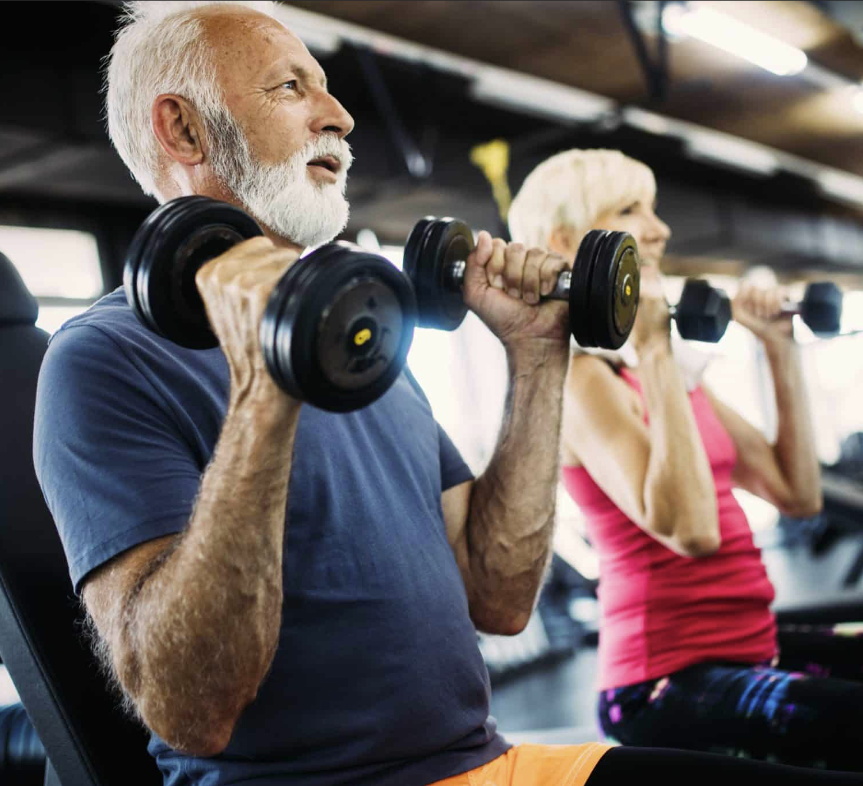
Which Exercise Is Best for Your Brain? New Study Reveals Surprising Winners for Cognitive Health in Older Adults
Share
As the global population continues to age, preserving cognitive function has become a top priority for individuals, families, and healthcare systems. This is a why we at Preventing Decline exists - to bring awareness and tools needed to help reduce the risk of our members. While it's well known that physical activity can support brain health, the big question has remained: Which type of exercise is best for your brain?
A groundbreaking 2025 network meta-analysis by Zhang et al., published in Experimental Gerontology, may have provided the clearest answer yet.
The Study at a Glance
Researchers analyzed 116 randomized controlled trials involving 11,816 older adults (typically aged 60 and up). Their goal was to compare the effectiveness of different exercise interventions—ranging from aerobic and resistance training to mind-body practices like tai chi—on overall cognitive function.
Using a statistical technique called network meta-analysis, they were able to compare multiple interventions simultaneously, even if head-to-head trials didn’t exist between them.
Key Findings: Not All Exercise Is Equal for the Brain
The study revealed several important takeaways:
🧠 1. Multicomponent Exercise Came Out on Top
Exercise programs that combined aerobic, resistance, and balance training were the most effective at improving global cognitive function in older adults. These programs tend to offer a rich mix of physical challenges that may stimulate both body and brain more fully than a single form of exercise alone.
🧘 2. Mind-Body Exercises Also Ranked Highly
Tai chi, qigong, and other mind-body approaches were found to be especially effective for attention, executive function, and memory. These exercises often involve coordinated movement, breath control, and mental focus—factors that may explain their brain benefits.
🏃 3. Aerobic and Resistance Training Are Still Valuable
While not the top-ranked methods, both aerobic (like walking or cycling) and resistance training (such as weight lifting or bodyweight exercises) had significant cognitive benefits, especially when done consistently over time.
⏱️ 4. Duration Matters
Interventions that lasted at least 12 weeks showed greater cognitive improvements than shorter programs. Regularity and sustained commitment to movement appear to be critical in protecting brain health.
Why Does This Matter?
Cognitive decline affects millions of older adults worldwide, increasing the risk of dementia, reduced independence, and lower quality of life. Yet, this study reinforces that the right kinds of exercise can act as a powerful, drug-free way to protect your mind.
The findings also help clarify confusion around which types of activity offer the greatest benefit. Instead of choosing just one form of exercise, mixing it up may be the most effective brain strategy.
Actionable Tips for Older Adults
Want to make the most of your workouts for brain health? Here’s what the evidence suggests:
- ✅ Do a mix of activities. Aim for aerobic (like brisk walking), resistance (bodyweight or light weights), and balance exercises (yoga, tai chi).
- 🗓️ Be consistent. Strive for at least 3 times per week for 12+ weeks.
- 🧘 Incorporate mindful movement. Activities like tai chi or yoga can enhance focus, coordination, and memory.
- 🔄 Stay engaged and challenged. Varying your routine keeps your brain and body adapting.
One More Piece of the Puzzle: Hearing Health
As social interaction and cognitive engagement are essential for maintaining brain function, it’s worth noting that untreated hearing loss has been strongly linked to cognitive decline. If you’re looking to maximize your brain health, treating hearing loss and engaging in social, physical, and mentally stimulating activities can make a powerful combination. A great place to start is with one of our Preferred Providers, where their patients receive a free PD+ membership as part of their treatment plan.
Final Thought
This study by Zhang and colleagues gives us clear, research-backed direction: Stay moving, stay varied, and stay mindful. The road to a healthier brain starts with movement—and it’s never too early or too late to get started!
Learn more about our Preventing Decline membership options.
Reference: Zhang J, Ye W, Li W, Zhang F, Wu Z. Comparative efficacy of exercise interventions for cognitive health in older adults: A network meta-analysis. Exp Gerontol. 2025 May 2:112768.

